This album is thought to be organized in chapters, and each chapter best represents an evolving sound poem or improvisational mnemonic device, based on an evolving intergalactic culture. Now step through the portal and leave everything behind, enter Interdwell time.
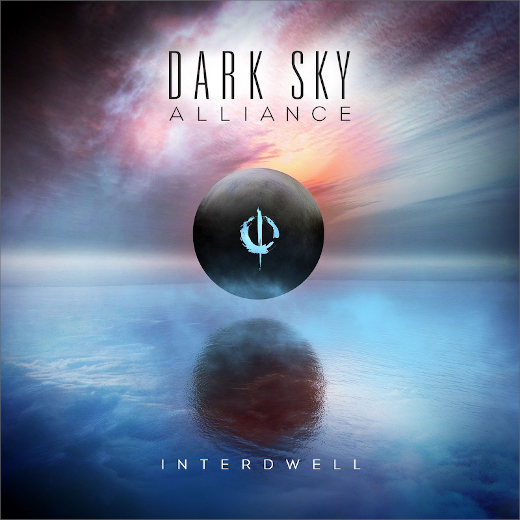
Music of worlds beyond our world
Astronomy is one of the oldest of the natural sciences. Space flight is an application of astronautics to fly objects, usually spacecraft, into or through outer space, either with or without humans on board. The art is to overcome the force of gravity and propel a spaceship from the surface of the Earth. Interdwell is finding a home for your ears while you proceed with the art of travel by spacecraft from one star system, solitary star, or planetary system to another.
The Dark Sky Alliance, (Eric Taylor, Rupert Greenall, Gerry Marotta and David Helpling), brings music of worlds beyond our world, whose audio clues only reveal themselves when the light of our day grows quiet and low enough to view the dramatic and brilliantly colorful heavens after dusk, suggest a vastness that I for one cannot possibly comprehend, from somewhere way up there above our heads.
Jerry Marotta is the key percussionist and has recorded and toured with such stellar talents as Peter Gabriel, The Indigo Girls, Suzanne Vega and Los Lonely Boys; Eric “the” Taylor is the Architect of Ambient Soundscapes and coaxes massive symphonic worlds from vintage analog synthesizers; David Helpling plays guitars also Yamaha CP70 and approaches his projects with a powerful sense of color and cinematic scope; while Rupert Greenall paints in textures by using his voice to play synthesizers. Rupert also continues to play with the new wave rock band The Fixx, whose bright and percussive guitar sound is an establishing element.
For the album Interdwell, extending the reach of the Dark Sky Alliance is the late Sonam Targee, vocalist and trumpet player. Sonam died of Lou Gehrig’s Disease on April 15th, 2022. We have the gifts of Robert Rich, multi-instrumentalist and pioneer of ambient, dark-ambient, tribal and trance genres, here he plays grand piano, self-made flute, as well as analog and digital synthesizers. Tony Levin, currently is also collaborating with King Crimson, Peter Gabriel Band, Stick Men and Levin Brothers, and here he plays a bowed double bass on the extended track, “The Slow Train Home.” Joe Locke was inducted into the Music Hall of Fame in Rochester, he is also a consultant at the Royal Academy of Music, he holds the title of Hon. ARAM, and plays vibraphones potentially everywhere he goes. Forrest Fang is a legendary composer and home studio pioneer, here he provides sampled percussion. Forrest is a multi-instrumentalist exploring exotic and traditional instruments from all around the world, with a catalog of over two dozen amazing and inspiring self-produced albums, journeys to worlds somehow both ancient and futuristic. Jamie West Oram, longtime bandmate with Rupert and guitarist in the band The Fixx, here plays electric guitars, and so much more. Oram brings simple yet haunting beautiful melodic elements that are interlaced seamlessly into the ensemble. They are putting brilliantly purposeful layers into the music, as if they want listeners to experience these recordings in a way that is connected, authentic, and very personal.
This album is thought to be organized in chapters, and each chapter best represents an evolving sound poem or improvisational mnemonic device, based on an evolving intergalactic culture. Now step through the portal and leave everything behind, enter Interdwell time. Humans began the physical exploration of space during the 20th century with the advent of high-altitude balloon flights. Chapter 1, “Search” (2:36) begins this journey into which you will begin to hear analog and digital synthesizers, bass, electronic percussion, slow and gentle rising opening gliding, briefly a mysterious beat, just a glimpse at the end of the track, under an endless twilight that reflects upon the water’s mirror of a floor that the expanse’s ground actually claims. Chapter 2, “Fortunate One” (7:19) probes the notion that luck is a melody in which you will hear Taos drums, shakers, analog and digital synthesizers, vocoder, upright piano, acoustic and electronic percussion, guitar textures, synth bass, vocal chants, and Tibetan bells. Jamie West Oram also plays electric guitars.
Chapter 3, “Warm Inlet” (6:42) is almost a sound bath in motion. Here is where you will hear Taos drums, shakers, percussion, analog and digital synthesizers, vocoder, grand piano, electric bass, guitar, trumpet. Jamie West Oram also plays electric guitars. The story has it that there’s a cabin in the Adirondacks, right there on 7th Lake where there’s an inlet that can only be reached by boat. The sun is shining and the sand is almost luminescent with reflection. Chapter 4, (check out the video) “The Desert Mind” (5:43) tells a new part of the story, in which you will hear flowing granular waves on a desert planet with no natural precipitation, Taos drums, shakers, bells, acoustic and electronic percussion, analog and digital synthesizers, and ambient textures. Robert Rich plays the flutes. This is a story of the harsh climate of a planet and the beauty that can be found in dangerous places. Be wise with the gift of eternity. We fade in swirling, there are Fort Apache meadowlarks at dawn, desert winds and something is taking form, a caravan. How can that be?
A whimsical odyssey you must experience alone ::
One wrong turn and the desert lays claim to you. Be mindful. Chapter 5, “Latch” (3:16) keeps safe a place in which you will hear analog and digital synthesizers, electronic percussion, and ambient textures. Joe Locke plays the vibraphone. Think of the latch to the space pod as you enter the great unknown, on a whimsical odyssey you must experience alone. Then let go of the latch. Imagine in the dark distant void a growl almost emerges, low like thunder as more instruments assemble. The latch keeps us secure.
We come to the title track, Chapter 6, “Interdwell” (8:30), where space is the place in which you will hear Taos drums, electronic percussion, shakers, analog percussion, analog and digital synthesizers, guitar textures, and synth bass. Here Jamie West Oram also plays cosmic electric guitars; Robert Rich plays cosmic analog and digital synthesizers and Joe Lock plays cosmic vibraphones.
Chapter 7, “The Far Cry” (7:46) comes from a distant place in which you will hear Taos drums, electronic percussion, analog and digital synthesizers, ebow guitar; notably Robert Rich plays grand piano. The feeling is like taking altitude. I think I hear the piano speaking gently, the percussion is slow and the bass talks perfectly slowly. Chapter 8, “Marotta Swamp” (6:27) takes us all to a fine quiet place in which you will hear analog and digital synthesizers, field recordings, percussion, guitar textures; there are Fort Apache Meadowlarks and you can smell the lush greenery. Listen to the ecosystem. The electronic glow builds with a hint of night insects creaking, somehow floating above the swamp at night.
Local concentrations of matter have condensed into stars and galaxies. Chapter 9, “Tré Pur” (4:20) opens a new channel in which you will hear analog and digital synthesizers, vocoder, grand piano, guitar textures, electronic percussion. Tré Pur, is Rupert spelled backwards and this track is an ode to Rupert, who is understood as one of the master synthesists of our generation. The sound opens into a pure sustained glow, building and rising. Now a piano brings a reverberating chord fluttering and flickering against the slow drone coming from somewhere high up on top. Outer space, commonly shortened to space, is the vast expanse that exists beyond Earth and its atmosphere and between celestial bodies. Chapter 10, “The Slow Train Home” (10:29) brings us to the longest track, one in which you will hear analog and digital synthesizers, field recordings, guitar textures. Tony Levin plays the bowed double bass. Robert Rich plays the flute. Joe Locke plays vibraphone and this is the story of riding the train, covering the longest distances on the album. Here after the track’s introduction madness, all is slow and easy with a dark echo, the feeling is sad and relaxed, and the bass gives it extra energy. This all builds as it keeps slow and easy, stronger-stronger as a flute comes in, and then it is all secretly opening up more and more, while somehow keeping sleepy and slow. This feels like a soaring night flight rather than a clattering railroad, no, wait, here comes a train calling or answering in the distance and the tracks ring, fade to black.
This next part is the guitar jam. Chapter 11, “Linear” (5:06), is a continuum in which you will hear drums, electronic percussion, shakers, log drum, analog and digital synthesizers, guitar textures, and that haunting synth bass; with Jamie West Oram who also plays electric guitars, and Forrest Fang provides the sampled percussion. Searching for that rising glow gets complicated, now the tempo takes off and this is where the energy and groove come together.
Now the end is near. Slow it down. Take that deep breath. Chapter 12, “Bring Myself To Say It” (3:50), in which you will hear analog and digital synthesizers, grand piano, and ambient textures. The strength to say it can be found here. When nothing else can be said but the truth to begin the process of healing, I hear dawn breaking as the orchestral glow rises, the piano emerges hesitantly until we are soaring high in the sunset sky with those haunting twilight colors. Later a dreamy piano is the guiding force above the glowing sub foundation and somehow has brought us all home safely.
Interdwell is available on Spotted Peccary Music. [Site | Bandcamp]






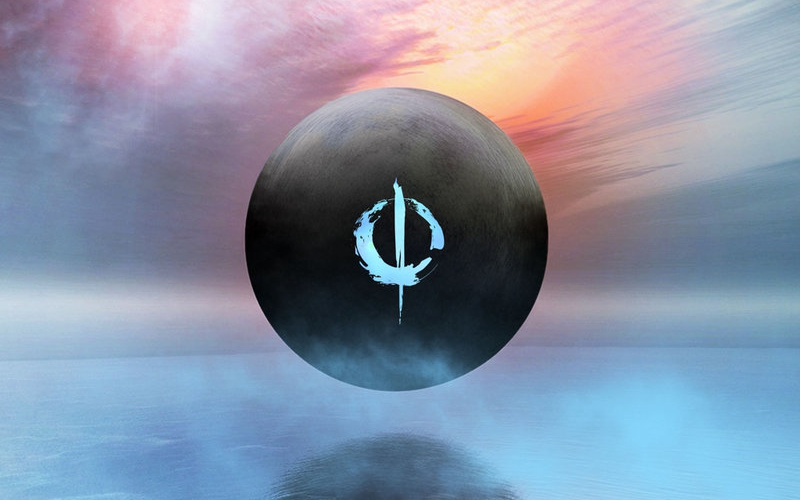
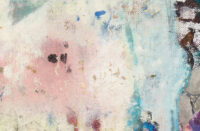
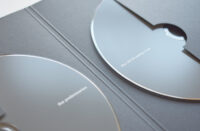
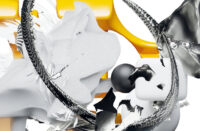
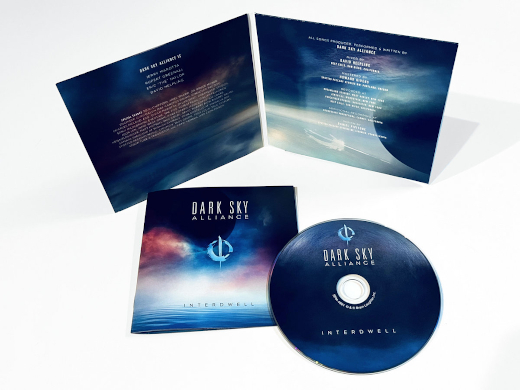

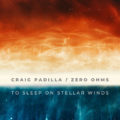
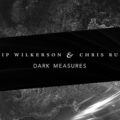
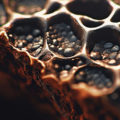
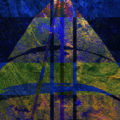
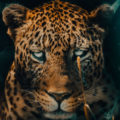
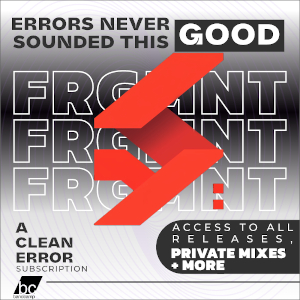

![Pole :: Tempus Remixes (Mute) — [concise]](https://igloomag.com/wp/wp-content/uploads/2025/04/pole-tempus-remixes_feat-75x75.jpg)






![Hasbeen :: Bunker Symphonies II (Clean Error) — [concise]](https://igloomag.com/wp/wp-content/uploads/2025/04/hasbeen-bunker-symphonies-ii_feat-75x75.jpg)
